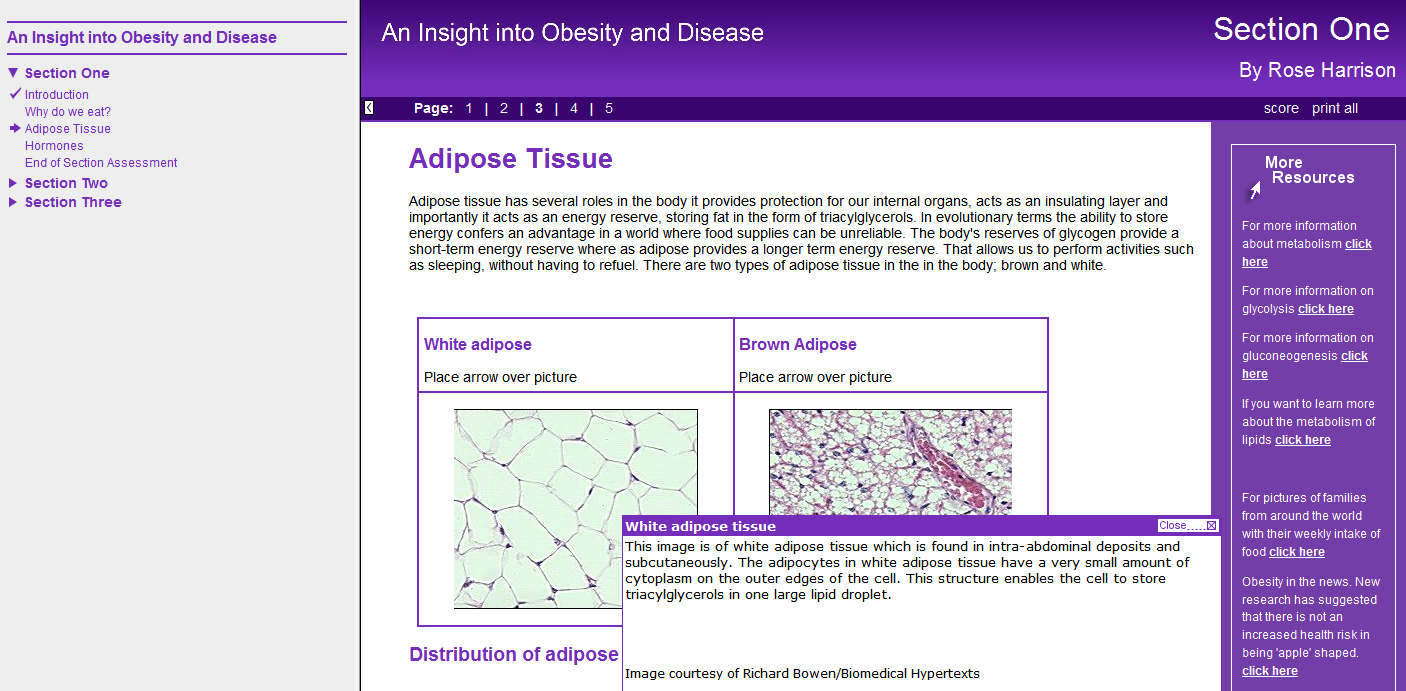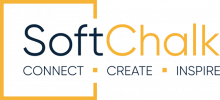
At the University of Manchester in the northwestern UK, the Faculty of Life Sciences is dedicated to research, learning and engaging the public. This focus provides students with rich opportunities to produce original scholarly work while contributing to their communities. To this end, all final year honors students in the department complete a capstone project focused on different areas, including lab-based, education, and science and media communications; a portion of these students complete eLearning Projects. SoftChalk has become an integral tool for students in this program, leading Manchester to be one of the first UK universities to pilot the SoftChalk Cloud content repository.
Rich student-designed courses
eLearning Project students create educational resources around a particular science subject area, designed in conjunction with a faculty advisor. They come to SoftChalk after identifying learning outcomes, compiling research and determining the right combination of software to achieve their goals. Though students may use a variety of tools to develop learning materials, lessons are increasingly delivered in SoftChalk because of its ease of use, portability and compatibility with other tools.
“Rather than worrying about the technology, they get on with the content,” says Ian Miller, eLearning Manager for the Faculty of Life Science.
The end product is a rich eLearning course that integrates text content, interactive experiences and pre- and post-evaluations – delivered in SoftChalk. Faculty advisors and Ian then evaluate the course and determine how these student-created learning materials can be used in subsequent Life Sciences courses. This faculty-student partnership develops quality curricula while encouraging the faculty to try SoftChalk and other new educational software.
“In our school, there is a lot of face-to-face teaching, and it can be pretty dry in the way of PowerPoint delivery,” says Ian. “By using students this way, we are showing staff a little more about what you can do, which is quite different. All distance learning tutors have SoftChalk now, and they are replacing old materials with it.”

The potential of SoftChalk Cloud
Pre- and post-assessments are an integral part of the courses students create, allowing them to gain feedback on the effectiveness of the learning materials. Yet they are often challenged to figure out how to deliver their courses with assessments built in. Ian says, “This is why we’re excited about SoftChalk Cloud,” SoftChalk’s learning object repository with enhanced access to evaluation tools and learner data. The department purchased SoftChalk Cloud licenses in hopes that it will allow students to upload their SoftChalk learning resources, make them publicly available and gather data from users.
Though it is early in Manchester’s adoption of SoftChalk Cloud, Ian is already seeing it’s potential. He appreciates how easily it facilitates sharing and evaluation, and hopes that it will allow students to share and pilot learning materials beyond the university. As an advocate for open education resource (OER) initiatives, he is seeking ways to work within the UK’s more stringent copyright laws to make more materials public.
“My plan with SoftChalk Cloud is to make some learning materials as public as we can. It is a nice system for delivery,” he says.
As Ian and his colleagues at Manchester continue to pilot SoftChalk Cloud, they’ll provide a model for how SoftChalk can enable the creation and distribution of OER. In the meantime, their use of SoftChalk provides a robust model for how students can enable faculty to adopt new technology to improve teaching and learning. “In order to get people to use software, they have to build confidence,” says Ian. “Give it to students first and it peaks faculty interest. We are very focused on supporting staff and students in an equal way.”
